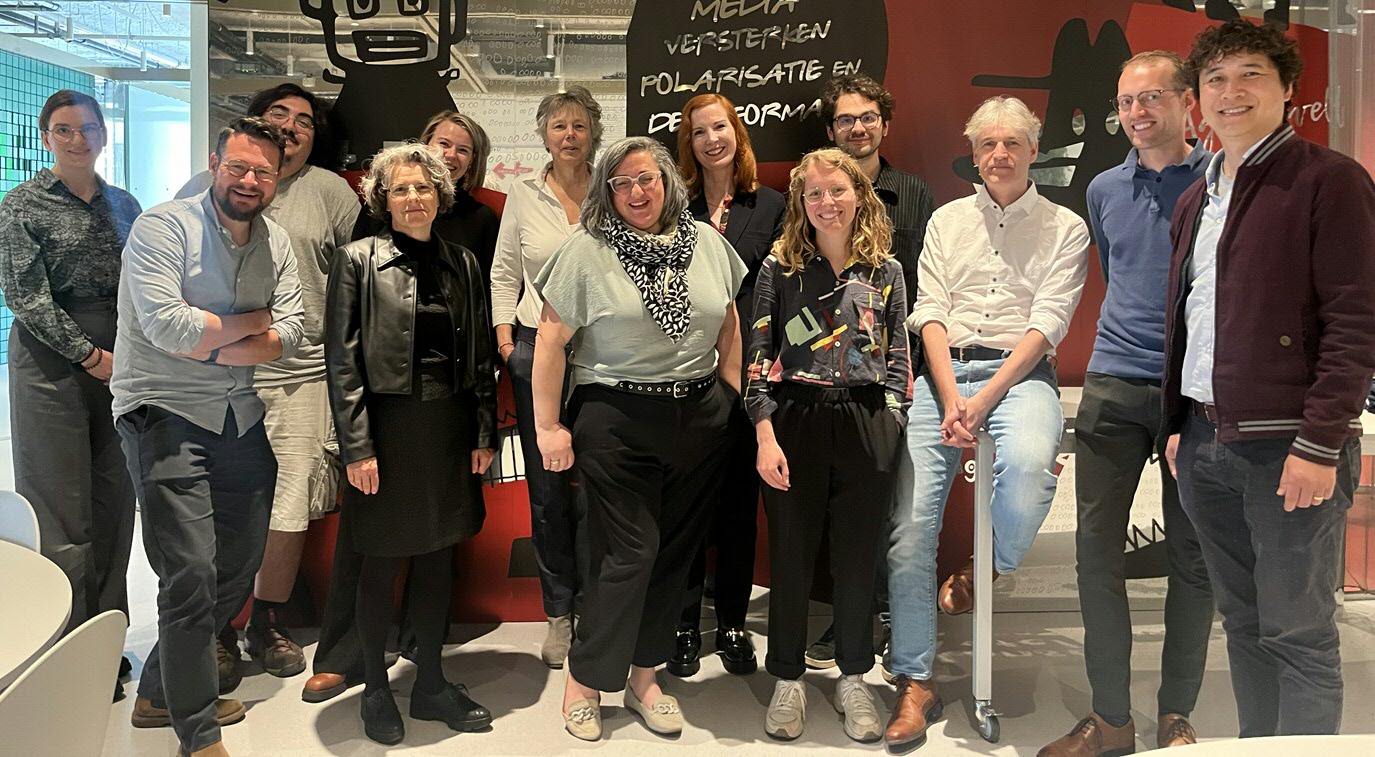Honorary doctor Kate Crawford visits House of Connections
The University of Groningen awarded four honorary doctorates during the lustrum week. One of the recipients was AI researcher Kate Crawford. In the House of Connections, she joined a discussion with UG researchers prior to the ceremony. The event was organised by the Jantina Tammes School of Digital Society, Technology and AI.
Crawford received an honorary doctorate for her exceptional work as a researcher in the field of social change and media technology, specifically in the field of artificial intelligence (AI). She is recognised as one of the leading experts on the social implications of AI. On this topic, she has written in leading scientific journals and popular media, such as the New York Times. Crawford also created several exhibitions on artificial intelligence.

At the House of Connections, Crawford was welcomed by Ming Cao, director of the Jantina Tammes School and full professor of Networks and Robotics. Several researchers were present at the meeting to discuss with Crawford the ethical issues related to AI and the role of social sciences in AI research.
Exhibition
In the end, the introduction round of the various researchers present proved to provide plenty of topics for discussion. Crawford responded with interest to the researchers' contributions and had a question ready for everyone. She also discussed her own AI research and the exhibitions she creates with media scientist and cartographer Vladan Joler, such as the project Anatomy of an AI System, which includes a map depicting the human and planetary costs of artificial intelligence.
During the meeting, Crawford also shared her latest project, again in collaboration with Joler. To put today's raging developments in perspective, a historical perspective is vital, Crawford argued. Hence the 24-metre-long map ‘Calculating Empires’. It entails a genealogy of technology and starts around the year 1500, a time when the printing press and European colonisation caused major political and cultural changes. The map ends in 2025: in the current era, we are once again in a turbulent time with the ‘AI boom’, Crawford explained.
The map with over five hundred years of history is a political statement, Crawford said. Technology is often used to centralise power. With the exhibition, the makers aim to map this process. Today's AI systems show a similar pattern: four big tech companies pull the strings. Such centralisation of power on a global scale is unprecedented, Crawford said. ‘That's why we need to have a conversation about it now, exactly as we did today!’
Honorary doctorate
The hour-and-a-half meeting with Crawford ended before those present could notice. An important ceremony awaited the AI researcher. In the afternoon, Crawford was awarded an honorary doctorate by Rector Jacquelien Scherpen. In total, there were four laureates. The honorary doctorates were selected on the basis of four key UG themes: energy, digitisation, sustainability and public health. Besides Crawford, Tedros Ghebreyesus, Gerrit Hiemstra and Mariana Mazzucato received honorary doctorates.
| Last modified: | 31 May 2024 11.53 a.m. |
More news
-
16 December 2024
Jouke de Vries: ‘The University will have to be flexible’
2024 was a festive year for the University of Groningen. Jouke de Vries, the chair of the Executive Board, looks back.
-
10 June 2024
Swarming around a skyscraper
Every two weeks, UG Makers puts the spotlight on a researcher who has created something tangible, ranging from homemade measuring equipment for academic research to small or larger products that can change our daily lives. That is how UG...

